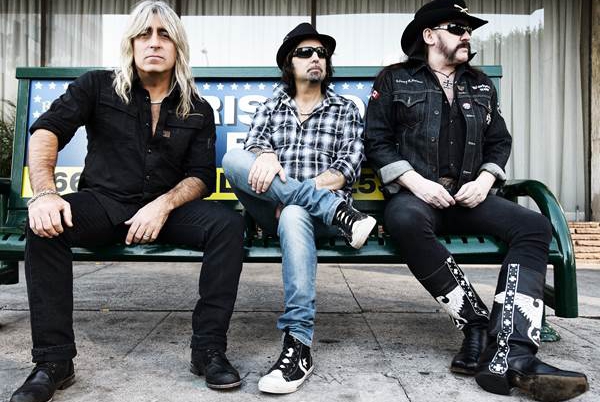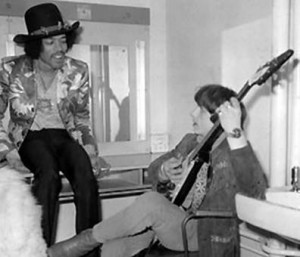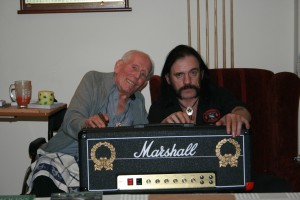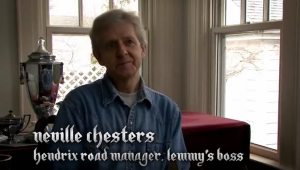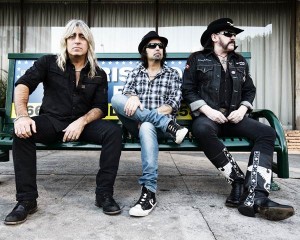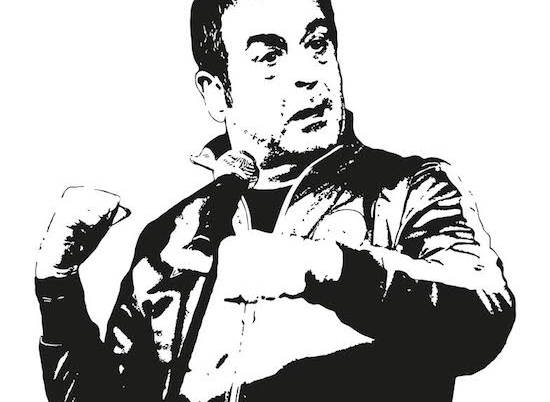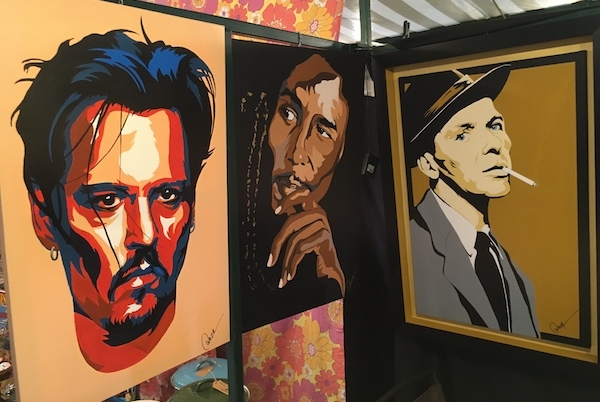The music world has been in mourning since the news came through earlier this week: Ian Kilmister had passed away.
Just two days after receiving diagnosis of an 'aggressive cancer,' the man loved and revered the world over as Lemmy, had departed this world for the rock n roll hall of fame in another place, writes Sammy Jones.
An outpouring of love on a scale seldom seen has filled newspaper columns and television screens since.
Everyone wanted to pay their respects to the real and true rock legend.
With his band Motörhead, Lemmy wasn't just a part of the scene, he was a catalyst for the hard and the heavy sounds that became known as heavy metal. He was an all round inspiration.
Ozzy Osborne, Alice Cooper and Gene Simmons were among the first to pay tribute to their friend, using social media to communicate their sadness.
Foo Fighters frontman Dave Grohl let ink do his talking – and got Motörhead's famous Ace of Spades design tattooed on his wrist.
Lemmy's life and times have been well documented, and few tell it quite as well as the book White Line Fever, and the 2010 film, simply titled Lemmy. One man figuring on both the page and on reel is former road manager Neville Chesters, who worked for some of the industry's biggest players.
Neville, with Jimi Hendrix
“The first band I worked with as a roadie was The Merseybeats in 1963,” Neville told Total MK, “...that's when I met Lemmy.”
“I remember it well – his band was the The Rockin' Vicars, are we were playing at the Blackpool Palace Ballroom, which was a big deal in those days...
“The Rocking Vicars had just been to Sweden, and Russia, and the big thing was that they were the first British band to play behind the Iron Curtain.”
Lemmy told Neville about his band, and over backstage chats, a friendship blossomed.
“He was a little bit brazen even then, but nowhere near like he became. Every time we were in and around Liverpool or Manchester he would drop by and see me, and that went on for a long time, through my time working with The Who, and then of course the big thing happened...”
A well respected road manager during the sixties and seventies, it was Neville - now based in Milton Keynes - who gave Lemmy his now infamous job roadying for Jimi Hendrix.
Lemmy with Marshall Amplification founder Jim Marshall
“We were playing at the Empire Ballroom in Liverpool, and staying at the Adelphi Hotel, and at the end of the gig, Lemmy said 'Are you going back to London? Can you give me a ride?'
“He had nowhere to stay and asked if he could sleep on the floor of the Adelphi, which he did,” Neville recalls.
“The next morning he asked if we could swing by his house to get a few things.
“I live just over the river, just over the Mersey,” he said.
“So we go over the river and start driving West, and go into Wales...now we're miles away!
“He had a cheap blue cardboard suitcase and threw some things in, and we start on the way back.
“It was a long drive, and by the time we got back into London, it was early evening.
“Where do you want me to drop you?” Neville asks.
“I was hoping I could stay at your place,” Lemmy replied.
“I had just got a new flat, with three single mattresses on the floor, and in the kitchen there was an old fridge. It never had any food in it, but we used to keep acid in there, on pieces of blotting paper...
“Noel (Redding, Hendrix Experience guitarist) was sharing with me, so there was a spare mattress and he was in luck.
“The next morning I asked him what he was going to do: “Can't you wangle it so that I can be your assistant?” Lemmy asked.
And Neville swung the deal.
“...and I got myself an assistant. Not that it was any good at all because he never ever did anything!
“Very little. He would pick up two guitars, carry them into the gig, and then he'd disappear!
“But Lemmy just slotted in. Although he didn't have the job for long, there wasn't an actual end to the relationship, other than him telling me that he was going to put his own band together.
Neville in a still from 'Lemmy, the movie'
Lemmy embodied the rock and roll, sure, but the sex and drugs were up there too: “I'm sure he knocked my girlfriend off two or three times when I was on the road, because that was Lemmy, you know...”
Even before his tenure with Hawkwind in the early 70s, Lemmy was getting noticed.
“He used to be in the Sunday Times, hanging out with debutantes. I can't tell you why. But you'd look at Lemmy and think 'How is this possible? People kept telling me 'He's in The Times again!'”
In 1975 though, things got serious; Motörhead debuted, and with time 'became quite the force,' Neville says.
The duo eventually lost touch, until Neville moved to New York in 1990.
Just as Lemmy had rocked up to those Merseybeats gigs back in the day, Neville now became a frequenter of Motörhead's New York shows. The last time they caught up properly was a few years back at one such gig.
Reminiscing, giggles and nonsense usually ensued, and this time was no different: “I went into the back area and closed the door. Lemmy looks up, sees me and says 'Stop, everybody...'”
And there was silence.
“He points across the room to me and says, 'This man was the first man to give me acid!”
“What an entrance!” Neville laughs.
“But he always had a respect for me, and me for him. He was great.”
“I heard he'd passed on the midnight news on Radio 4, and then later the phone calls started coming from the States.
“People ask me 'How did you feel when Jimi died?' and it's the same feeling now. I can't say that I was surprised.
“Everyone knows the stories about him, the legendary tales of him downing a bottle of Jack Daniel a day, and the like...
“To me, Lemmy was a lovable character, and a loyal friend.
“It has already been said by hundreds of people and by some very, very important people in the music industry, but Lemmy really is a legend, and I am glad to have had my association with him.
“The world is missing in icon...”


